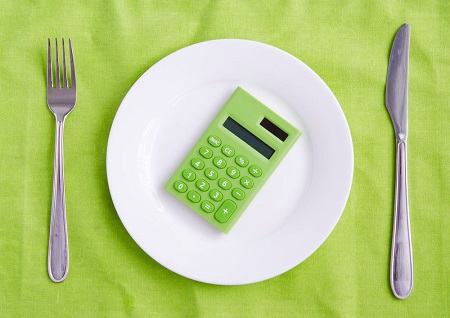 Counting calories has been proven to be one of the most effective ways to lose weight. That said, it’s far from the be-all and end-all of the weight control world. For one thing, it doesn’t tend to ensure that an individual will keep off any pounds that are lost. Moreover, it is more effective for some people than others, because what isn’t typically as well understood is that not every calorie is processed equally by the body.
Counting calories has been proven to be one of the most effective ways to lose weight. That said, it’s far from the be-all and end-all of the weight control world. For one thing, it doesn’t tend to ensure that an individual will keep off any pounds that are lost. Moreover, it is more effective for some people than others, because what isn’t typically as well understood is that not every calorie is processed equally by the body.
Counting Calories Isn’t Simple Math
Counting calories in a lab is extremely straightforward. One unit, from a thermodynamic standpoint, is the same as another. When burned, it will raise the temperature one kilogram of water by 1ºC (or 2.2 pounds by 1.8ºF). However, your body is not a lab. The nature of the food containing that energy plays a massive role in the impact it will or will not have on your body fat storage.
It’s for this reason that various dieting programs focusing on high protein, low carbohydrates or even high fats have been developed, among many, many others. The body uses food in different ways, based on its overall nature, and counting calories all by itself doesn’t typically take the complete equation into account.
If they were all the same, then counting calories would likely be the ideal strategy for every single dieter. Unfortunately, depending on the foods we typically eat in an average day, that is not the case. This explains why that strategy works exceptionally well for some people, while tracking other factors – such as macronutrients – will often seem more effective for others.
The Energy Your Body Can Use
This is not to say that counting calories is not a good strategy for you. In fact, even if you decide that tracking something else is your best strategy, knowing the calorie total of the foods you eat every day can still be quite helpful. An app that allows you to monitor more than one factor can help to bring the entire picture into clearer focus, so you can start to make more informed decisions based on many factors instead of relying on just one.
The calories you count in your foods do still represent an overall lab-based concept of the energy they contain. This may not be precisely how usable that energy is to your body – deciding how much you will or will not need to burn off before there is a risk of additional storage as fat – but it can give you a guideline. The same can be said about tracking carbs, proteins, fats, sugars and other components we tend to relate to gaining or losing weight.
Counting Calories In…and Out
Of course, it’s not just a matter of what you eat. When you’re counting calories, macronutrients, sugars and other nutrition factors, you also need to know how much you’re burning. The whole point is to make sure that you’re using more than you’re taking in if you want weight loss to be your goal.
Making sure you’re regularly active and have the right metabolism support can help you to know that you’re getting the most out of all the efforts you’re making to eat strategically for weight control.
[…] rate advantage, but it doesn’t mean that this is the only road to take to be sure your body is burning through the calories you’re […]
[…] if calorie counting isn’t part of your strategy, track your meals and snacks for a week or so to get to know the […]